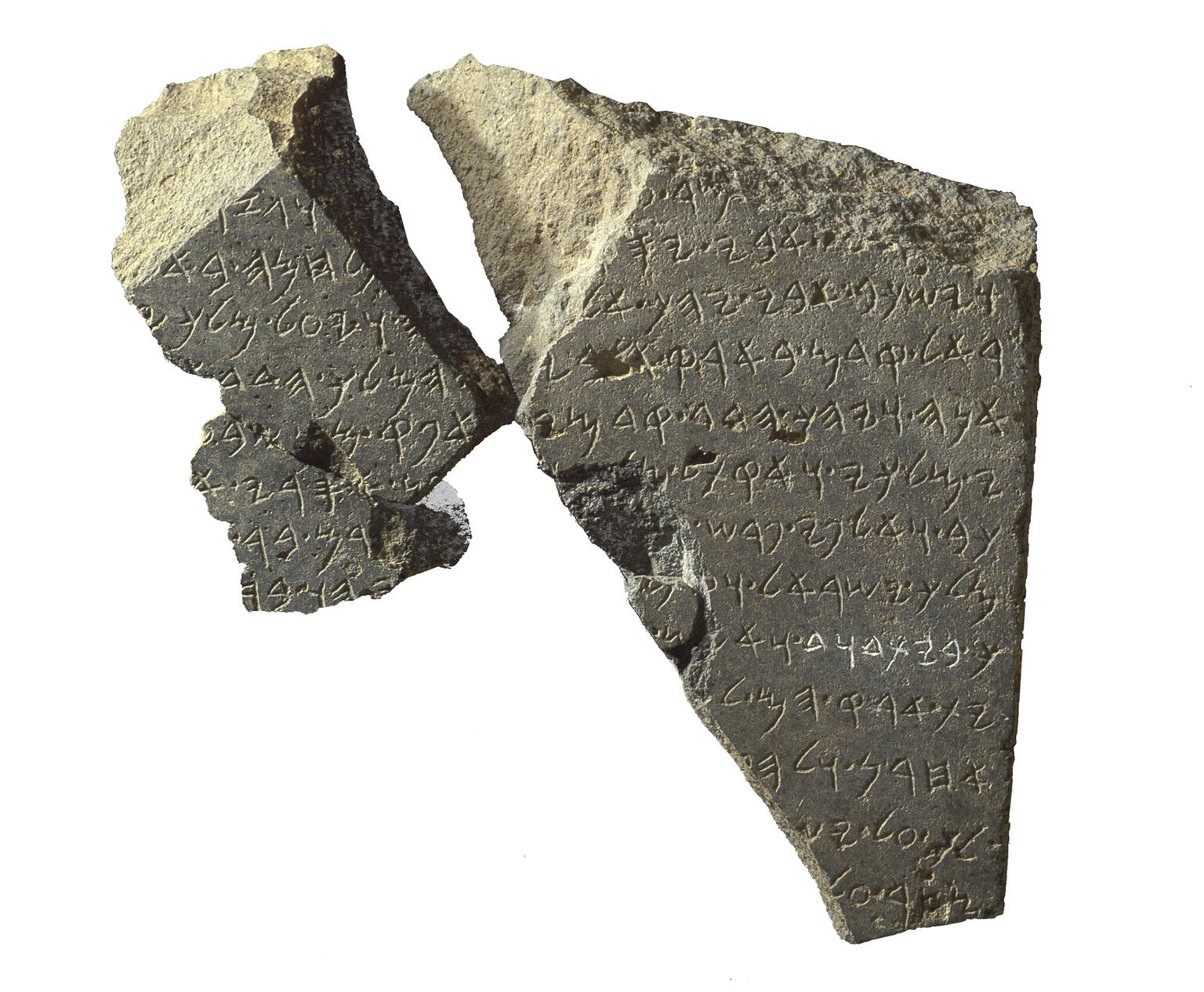Tel Dan Inscription
Late 9th Century BCE

Related Guide
Ancient Israelite Culture: What Can We Know?
The Hebrew Bible provides a limited view of life in ancient Israel, so scholars turn to related material for additional evidence.
Related Guide
Ancient Israel in Foreign Writings
Inscriptions and documents from ancient Israel’s neighbors, especially Assyria and Babylonia, provide important historical context.
This fragmentary Aramaic inscription of Hazael, a king of Damascus in the late ninth century BCE, was found at the city of Dan in northern Israel. It records Hazael's defeat of two Israelite kings, possibly Joram, son of Ahab, king of Israel, and also Ahaziah, son of Joram of the House of David, king of Judah. The reference to a king of the “House of David,” meaning a king from David’s dynasty or, more generally, a king of Judah (following the Assyrian practice of calling kingdoms by the name of their founders), shows that about 140 years after David’s death, he was known in the region as the founder of Judah or its ruling dynasty. Many of the restorations, though based on similar texts, are uncertain. The House of David is also mentioned in the Stela of Mesha, King of Moab.


